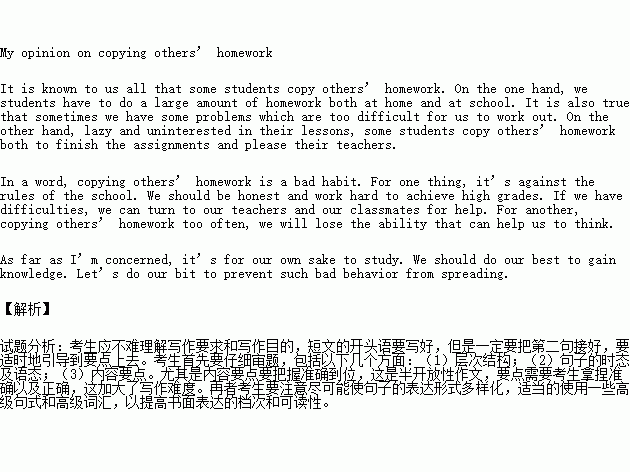题目内容
假定你是李华,看到班上有部分同学在完成作业时,不自己独立完成而是抄袭他人的作业,针对这种现象,请你以My opinion on copying others’ homework为题谈谈你自己的看法。
注意:1. 短文必须包括所有内容要点,可适当发挥;
2. 短文标题与开头已为你写好,不计入总词数;
3. 词数:100字左右。
主要原因 | 作业量大,偏难 |
对功课不感兴趣,懒惰 | |
完成任务,取悦老师 | |
危害及解决办法 | 抄袭不对,违反校规 |
要诚实,勤奋学习 | |
有困难可请教同学和老师 | |
个人看法 | ------ |
My opinion on copying others’ homework
It is known to us all that some students copy others’ homework. _____________________________________________________________________________________________________________________________________________________________________________________________________________________________________________________________________________________________________________________________________________________________________________________________________________________________________________________________________________________________________________________________________________________________________________________________________________________________________________________________________________________________________________________________________________________
Yours,
LiHua
 黄冈小状元解决问题天天练系列答案
黄冈小状元解决问题天天练系列答案 三点一测快乐周计划系列答案
三点一测快乐周计划系列答案
